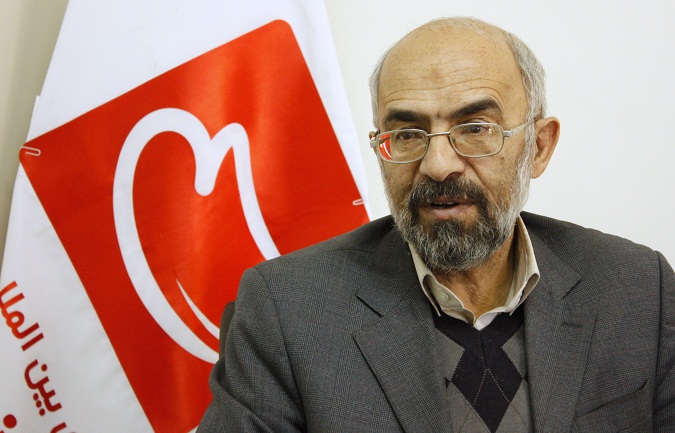Baku, Azerbaijan, Jan. 7
By Dalga Khatinoglu, Milad Fashtami Trend:
A member of Energy Commission of Iran's parliament says published news about lawmakers attempts to force government to reduce oil export is just baseless rumor.
Hossein Nejabat told Trend Jan.7 that legislators are discussing the reorganization of oil revenues-related topics in the budget bill, not cutting oil export.
Mohammad Esmail-Nia, a member of Parliament told Iran's ISKA news (Iran Student Correspondents Association) Jan. 6 that 124 MPs have signed a scroll demanding a full cut in Iran's oil export if the prices fall below $50/barrel.
Before that, Iranian Parliament's Energy Commission member Mahdi Mousavinejad unveiled the mentioned plan Jan. 2 saying that the plan is aimed at obliging the administration to cut crude oil exports by 25 percent in the next Iranian fiscal year.
However, member of Energy Commission of Iran's parliament Nejabat rejected these ideas, saying that parliament should focus on helping the budget to get rid of reliance on oil revenues, not to cut the country's oil export revenues.
Before western sanctions were imposed on Iran in mid-2012, 35 to 50 percent of the government budget had relied on oil export revenues.
Iran's petroleum revenues including, gas condensate, oil productions was about $114.75 (88 percent of total exports) in 2011, while the OPEC's oil basket price was $107.46/barrel and Iran was exporting 2.5 million barrels per day of oil export.
Iran's fiscal year starts on March 21.
There is no information about Iran's total petroleum export value in 2014, but the country reportedly exported 1.4 to 1.5 million barrels per day of oil, gas condensate and Natural Gas Liquids (NGLs), while the average OPEC oil basket price was $92.3/barrel. However, OPEC's oil price plunged to about $46.59 on Jan. 6.
Parliament's plans
Nejabat said that the country could turn the threat of falling oil prices into a great opportunity,
"The prices of energy carriers in Iran is getting closer to the Persian Gulf FOB prices, which is a positive development. By increasing the prices of gasoline, oil, and diesel oil in two stages, the prices will become real".
The Iranian government has increased the energy carriers' price two times since 2010, but the country's national currency has also lost its value by 3.5 times during this period. Iran is depositing about $13 for each registered citizen's bank account monthly as a compensation for rising fuel prices. There are 73 million people in Iran who was registered to get the cash subsidies.
"The falling trend of oil prices in global markets will help us near our prices to that of the regional countries," the MP added.
"Simultaneously, the government needs to cut paying cash subsidy to high-income families, which will be around half of the total number. By doing so, the government will have two sources to pay its current expenses," Nejabar stated.
Then all the oil revenues will go to the National Development Fund and we can spend it all on construction projects," he said, adding that according to the law, the private sector will be in charge of spending the fund's money in projects.
The Iranian government is obliged to transfer 29 percent of oil revenues to the National Development Fund currently.
"Carrying out these three tasks will cut Iran's dependency to oil revenues, or at least reduce the country's reliance on oil exports significantly."

"Providing enough money to pay for government's expenses is not an easy job. Increasing the prices of energy carriers may also cause inflation, but I think we can do it," the lawmaker noted.
"We won't cut oil exports if the plan is approved. But it will have no significant effect on the budget anymore."
The Iranian government increased the share of tax revenues by 20 percent to $23.15 billion, however the country faces a high inflation rate (17.2 percent) and stagnation.
Dalga Khatinoglu is an expert on Iran's energy sector, head of Trend Agency's Iran news service
Follow him on @dalgakhatinoglu






